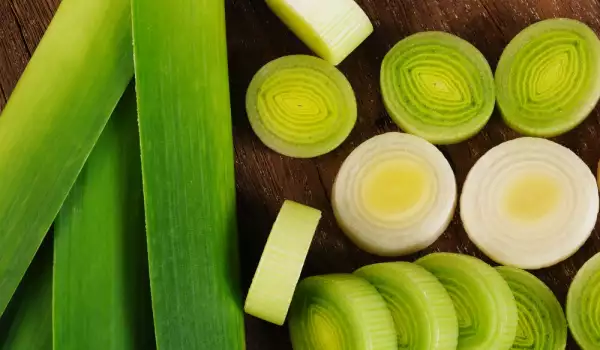Leeks are exceptionally beneficial for our health, but often remain undervalued. Even if they are delicious, many of us limit its use due to its specific smell.
The healing properties of leeks have been known about since ancient times. Leeks contain essential oils, proteins, carbohydrates, nitrogenous substances, cellulose, enzymes and many vitamins.
Most valued is its high content of potassium and very low levels of sodium (salt). In its components there are mineral salts of calcium, phosphorus, iron, 18 amino acids, among which is one of the most important ones for humans - cystine.
The most common medicinal use of leeks is for colds. In addition, they are used as a diuretic in folk medicine. They stimulate kidney function and help the body get rid of excess water.
For every 3.5 oz (100 g), leeks have barely 23 calories and no fat. Because of this, it is an excellent food for obese people, swelling, gout, kidney stones and other conditions.
It acts as a laxative by stimulating intestinal peristalsis. The low levels of sugar and high amounts of proteins and vitamins make it a suitable food for diabetics.

Leeks are a good anti-septic and antibacterial agent. They are used to treat intestinal infections and viruses. For excess mucus/runny nose, it is recommended to eat raw leeks at least 3 times a day.
Folic acid is exceptionally important for pregnant women. And in leeks it can be found in huge doses. Also, they are recommended for atherosclerosis.
Eating leeks aids digestion, is good for the heart and has a cleansing effect on the body. Leeks possess purifying, disinfectant, diuretic, detoxifying effects, they rejuvenate the skin and stimulate vitality.
To enjoy the full benefits of leeks, you can consume them raw or cooked. The white part is the most delicious, while the green leaves are most often used in soups and sauteed dishes.
It has a more delicate and sweeter taste than the common onion and is usually used in salads. Often it is added to meat dishes as well, since it can act as a substitute for onions in almost all recipes.




















